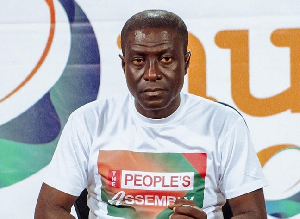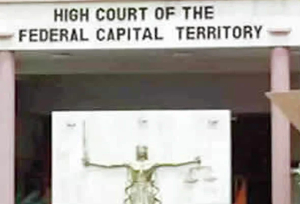Dear Chairman Manu:
When is a Delegate not a Delegate?
I write to seek clarification of the status of delegates to the forthcoming national congress to be held at the University of Ghana, Legon. As is well known, one of the most important decisions that the congress will make is to elect our Presidential candidate for the general election slated for November 2008. As you are no doubt aware, article 12 of the NPP constitution stipulates that the Party’s Presidential candidate is elected by the national congress, “which shall comprise of (i) 10 delegates from each constituency; (ii) 1 representative of the Founding Members from each Region; (iii) 1 representative of the Patrons from each Region; and (v) 1 representative of each overseas branch of the Party that is entitled to send a representative to the National Delegates Conference.”
In turn, article 6 (18) of the same constitution provides that “every constituency executive committee shall convene an extraordinary constituency delegates conference to elect, when required, 6 members of the constituency who are not constituency officers, together with 4 constituency officers, to be the 10 delegates of the constituency to attend the national congress.”
I take it for granted that under your able leadership, the 230 constituencies will convene the extraordinary constituency delegates’ conference (ECDC) and elect the 10 delegates in the manner specified by our constitution, taking into account article 55 (5) of the national constitution, which commands that “the internal organization of a political party shall conform to democratic principles.”
I write today because of the lack of clarity on how the delegates, once elected, are to vote at the congress. There is a widespread misperception that the delegates are principals who are free to cast a vote for any Presidential candidate of their choosing.
I do not see the support for this view in either our constitution or the national constitution, both of which embrace the concept of internal democracy. Nor does that view accord with the ordinary and plain meaning of “delegate.” According to the dictionary, a “delegate” is a person chosen to attend a congress, convention, or meeting on behalf of a constituency, interest group, or business. In other words, a delegate is a mere agent in a principal-agent relationship. As is well known, such a relationship introduces problems of moral hazard and adverse selection, fanciful ways of saying the agent (i.e., a delegate) may not act in the interest of the principal (i.e., the constituency). In order to avoid the principal-agent problem, the constituencies must take steps to ensure that the delegates represent their viewpoint at the congress. The constituencies cannot and should not assume that the delegates will represent their viewpoint. Au contraire, the constituents must assume that the delegates will not represent their viewpoints.
Mr. Chairman, failing to put in place mechanisms to ensure that the delegate represents the constituency’s viewpoint will come at a heavy price to the constituencies, party, and even the nation. First, such a failure will marginalize our rank and file supporters. We will be saying to them that we want their votes but not their say! Second, rather than compete on ideas to woo the rank and file supporters, the Presidential candidates will simply focus on winning the 10 delegates in each constituency. Third, a market for the buying of delegates will result. In this market, delegates will sell promises to vote to the candidates. This will contaminate the process and perpetuate the growing view that democracy is for the rich or corrupt. Fourth, debates among the candidates, which are sine qua non for identifying competent candidates, will rarely occur since the candidates will seek to talk to only the delegates. Fifth, a process which selects candidates based on “bribing” delegates will produce Presidential candidates who are unable to effectively address corruption, which is the major challenge for growing our fledgling economy. Sixth, candidates who lose in such a game are unlikely to respect the outcome and will likely rebel unless they enter into side agreements (e.g., promised ministerial appointments) with the winning candidates. Seventh, because it is easier to woo 10 delegates per constituency than woo the majority or plurality of members in a constituency, we will have too many marginal candidates, many of whom look forward to reaching the aforementioned side agreement.
Mr. Chairman, the preceding concerns provide the rational for writing to seek an immediate clarification of the status of the delegates at the impending congress, to wit, are NPP delegates to the impending national congress agents or principals?
Should you agree with the view that delegates are agents not principals, it will become necessary to define the basis for instructing the agent delegates to the congress. I offer two possibilities for your consideration.
First, delegates can be awarded based on a winner takes all approach. That is, a candidate who wins the constituency ECDC is automatically awarded the 10 delegates. For convenience, I will call the delegates under this regime the “constituency’s agents.” That is, the delegate represents the constituency (literally and numerically) and must vote for a Presidential candidate who got the most votes in the ECDC.
Alternatively, delegates can be awarded based on proportion of votes won. To illustrate, if candidate Kofi Mensah wins 60% of the votes cast at the ECDC, then he is entitled to 6 of the 10 delegates. I will call the delegates so awarded as the “candidate’s agents.” That is, each delegate is presumed to be pledged to a particular Presidential candidate and must vote for that candidate at the congress.
I have previously expressed similar views and raise other issues with our internal democracy (see e.g., click here). Perhaps, it is time to form a blue-ribbon commission to address these matters. Also, because of the public interest implicated by these issues, I have chosen an open-letter rather than a confidential communication.
Anticipating your usual co-operation and wishing you the best.
Sincerely,
S. Kwaku Asare















